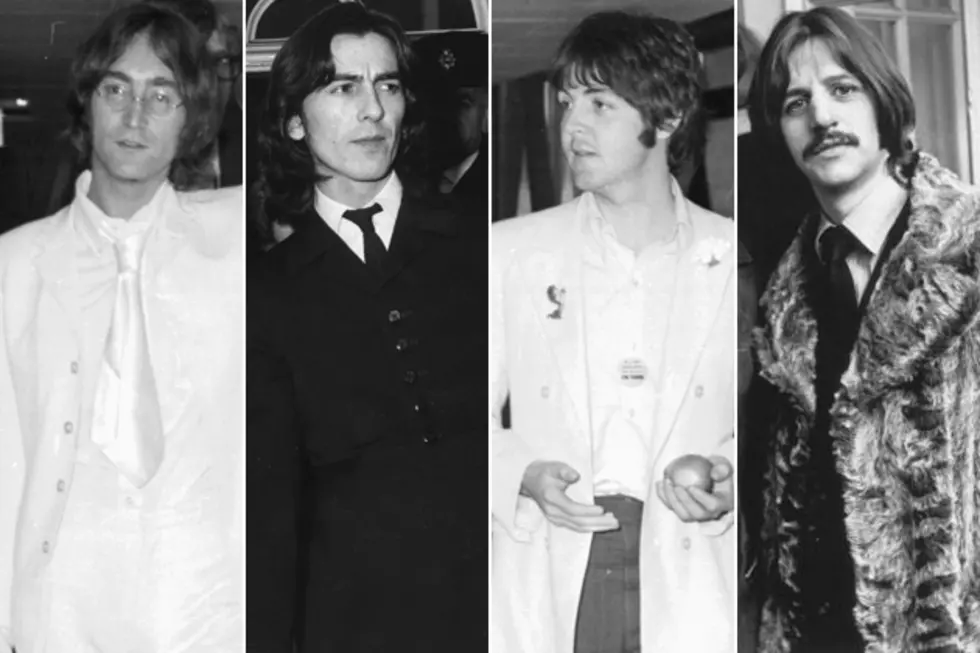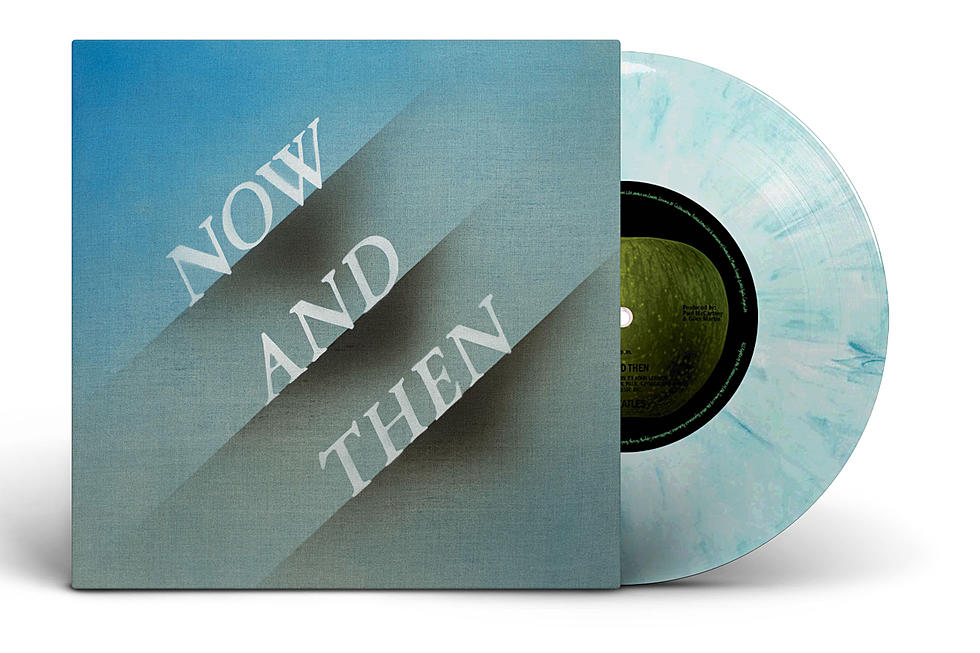
50 Years Ago: John Lennon Publishes Second Book, ‘A Spaniard in the Works’
Following the surprising commercial and critical reaction to his first book, In His Own Write, John Lennon was given the opportunity to produce a sequel. A Spaniard in the Works was published on June 24, 1965.
As with In His Own Write, Works was a slim collection of short stories and poems — 18 in total — punctuated by Lennon’s drawings. They reflected his love of wordplay — the title was a play on “spanner in the works,” a British expression that refers to something that single-handedly wrecks a plan — with other stories bearing titles such as Snore Wife and Some Several Dwarfs, We Must Not Forget … The General Erection and Last Will and Testicle.
The whimsical nature continued in the poems, which took on a more childlike tone and an odd obsession with animals, as noted in The Fat Budgie, The National Health Cow and Bernice’s Sheep. The exception is Our Dad, a longer and more serious poem that describes a family kicking the patriarch out of the house. Lennon’s father had abandoned him when he was young and, while the poem shouldn’t be taken as autobiography, it could be seen as Lennon trying to come to terms with his father’s actions.
At the time, Lennon was beginning to put his introspective nature into his work. He would later call this his “fat Elvis [Presley] period … And I am singing about when I was so much younger and all the rest, looking back at how easy it was. Now I may be very positive -- yes, yes -- but I also go through deep depressions where I would like to jump out the window, you know. It becomes easier to deal with as I get older; I don't know whether you learn control or, when you grow up, you calm down a little. Anyway, I was fat and depressed and I was crying out for help.”
While still a bestseller, A Spaniard in the Works sold fewer copies than its predecessor, but it didn’t seem to bother Lennon too much. “Okay, it didn't do as well as the first,” he said in 1965, “but then what follow-up book ever does? In any case, I had a lot of the stories in the book bottled up in my system and it did me good to get rid of them -- 'better out than in.' The book is more complicated; there are some stories and bits in it that even I don't understand, but once I've written something what's the point of letting it hang around in a drawer when I know I can get it published? The plain unvarnished fact is that I like writing, and I'd go on writing even if there wasn't any publisher daft enough to publish them.”
See John Lennon and Other Rockers in the Top 100 Albums of the '70s
You Think You Know the Beatles?
More From Ultimate Classic Rock









